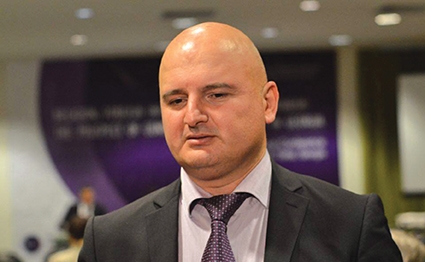Georgian Institute of Politics: Georgia as a Bastion of Modern Democratic Reforms
The Georgian Institute of Politics (GIP) is an independent research organization based in Tbilisi with a team of young researchers and experts working in both Georgian and English. It aims to address both a Georgian and international audience by explaining what happens in Georgia and its politics through research results.
Within the research program GIP covers international politics, democratization, European and Euro-Atlantic integration and within the educational programs, it organizes workshops, seminars, and summer and autumn schools in cooperation with partners such as University of Nice, Germany’s Ludwig Maximilian University the University of Utah, US, and Tbilisi State University.
GEORGIA TODAY met Kornely Kakachia, Executive Director of the Georgian Institute of Politics (GIP) and Renata Skarziute-Kereselidze, GIP Program Manager, to find out more.
Tell us about GIP’s current projects
Renata: One, due to begin shortly, is an attempt to explain international trends and processes for Georgia, what effects they have on Georgia, Georgian society and politics. We hope it will help to show the broader context that surrounds us and makes an impact. The project will cover Brexit and how it’s related to Georgia, why The Netherlands voted in a referendum against Ukraine, and how the European Parliament voted against propaganda by third parties in Europe. It is important to analyze how international politics will affect us in the future. The project will consist of published articles, round-table discussions and blogs. We will also bring international experts.
We’re currently running an analysis of the activities of Georgian parliament with the aim of publishing it to mark one hundred days of parliamentary work.
We had expert polls prior to the recent elections, which was something new and interesting to try; an additional tool to demonstrate expectations for the future. We will also be writing a series of articles, blogs, policy briefs and op-eds to see how different political parties are strategizing their programs. We’re planning a big conference on the topic of democratization in Georgia this spring.
GIP is also participating in a project initiated by the Open Society Georgia Foundation, monitoring the EU Association Agreement for Ukraine, Moldova and Georgia. Our director Kornely Kakachia is coordinating the project with a comparative report to be published in spring.
Kornely: We’re members of the OSCE think-tank and academic institution networks, so several times every year we contribute to the bigger OSCE reports on European security. We plan to attend an OSE ministerial in Hamburg, Germany, to present our visions on the country’s security issues.
Last month were politically intense both for Georgia and the US. What will the outcomes be for our countries?
Kornely: It’s a challenging time right now not only for Georgia but for the whole world, with an unclear picture of how US foreign policy will evolve over the next four or five years. Of course, it will affect Georgia as well as the whole region. However, I think it would be very premature now to guess where it’s heading. One thing is clear: even though there may be controversies around Trump’s foreign policy objectives in general, we should not downplay the role of Congress- even if Trump’s foreign policy is not favorable for Eastern European countries and Georgia, congress can always make a balance.
I don’t think there will be major challenges in US-Georgia relations or major breakthroughs. We need to strengthen institutional links between the two countries and move forward. This applies to Euro-Atlantic integration, too, and we have to concentrate on the Association Agreement and reforms. Georgia has to be prepared for that window of opportunity when it comes.
How would you characterize the political process in Georgia? Is it a step forward or is there a lack of political culture?
I would say that the last elections in Georgia showed a step in the right direction. While there were some minor irregularities, the only thing I think Georgia has to concentrate on now, and this concerns the ruling party, is how it’ll cope being the majority in parliament. As we know from the experience of the last 25 years, political parties that had super majority in parliament couldn’t cope. Our society, media and business community now has a chance to balance if something goes wrong and the government moves in the wrong direction. It’s also an opportunity for the government to implement reforms and show there’s a clear vision of how to achieve a good governance model.
What tendencies, alarming or positive, do you see following the recent elections in Georgia?
I think, following a continuous tradition, these elections showed that Georgian society is very polarized, pretty much as Georgian media is. We can see that the Georgian electorate wants the country to continue on its present course, but not too fast. I would say there’s a certain reform fatigue in our society, or a little bit of democracy fatigue, but that is normal; the country moved really fast with reforms in the last 10 years, and people want to take a break and analyze.
What are the key challenges for Georgia on the road to Euro integration?
Renata: We need to keep ourselves active and be more visible in the international arena, so that Georgia is not forgotten but included and rewarded for the progress it has made.
Kornely: Georgia has done so much in the process towards integration that there’s no way back. I think at the moment there’s no question of the foreign policy trajectory for Georgia. The global political agenda will of course be very important in the coming 10-15 years, especially with regards to security issues. We should not forget the regional aspects, too, the geo-political landscape is changing very fast. We should consider new realities in Europe and the world. Georgia has to be at the forefront of democratic reforms- that’s the only way to attract the attention of the west. We have to strengthen our image as a bastion of modern democratic reforms.
Nino Gugunishvili












